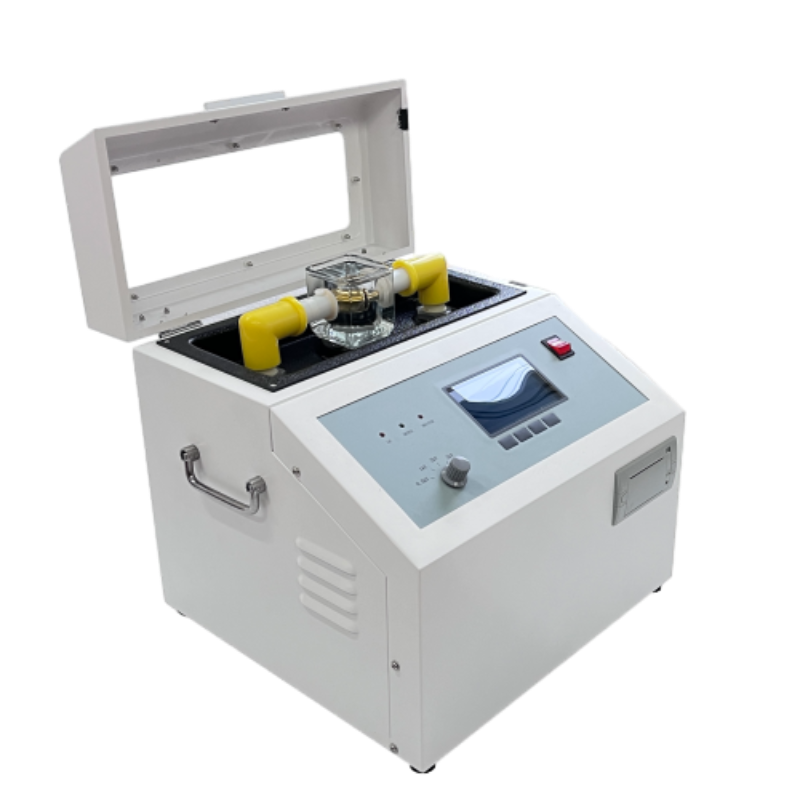 English
English


High Voltage Insulation Tester for Reliable Electrical System Maintenance and Performance Monitoring Solutions
Understanding HV Insulation Testers A Key Tool for Electrical Safety
High voltage (HV) insulation testers, also known as megohmmeters, are vital instruments used in the electrical industry to measure the insulation resistance of electrical equipment and systems. These testers ensure that electrical installations are safe and reliable, preventing potential failures that could lead to hazardous situations. In this article, we will explore the significance of HV insulation testers, how they function, and their critical role in upholding electrical safety standards.
The Importance of Insulation Testing
Electrical insulation acts as a barrier that prevents the undesirable flow of current to the ground or other conductive surfaces. Over time, insulation materials can degrade due to factors such as environmental conditions, mechanical wear, or aging, which can lead to failures. Insulation breakdown may result in electric shocks, equipment damage, and even fires. Therefore, routine testing of insulation resistance is essential to identify any potential issues before they escalate into serious problems.
How HV Insulation Testers Work
HV insulation testers operate by applying a high voltage to the insulation material and measuring the resulting current flow. This process helps determine the insulation resistance in megohms. The principle behind these testers is based on Ohm’s law, where resistance (R) can be calculated using the formula R = V/I, where V is the applied voltage and I is the measured current.
Typically, HV insulation testers can apply voltages ranging from 250V to 5kV or even higher, depending on the specifications of the equipment being tested. For instance, a common practice is using a 1kV setting for testing low voltage installations, while higher voltages are used for high voltage equipment, such as transformers and power cables.
Key Features of HV Insulation Testers
Modern HV insulation testers come equipped with various features that enhance their usability and accuracy. Some of the noteworthy features include
hv insulation tester

2. Automatic Insulation Resistance Calculation Advanced models can automatically calculate insulation resistance and display the results for easier analysis.
3. Data Logging Some testers have the capability to log test data over time, enabling users to track insulation performance trends and identify deterioration patterns.
4. Safety Precautions Safety is a top priority in electrical testing. High voltage testers are designed with features such as automatic discharge circuits that safely discharge capacitance after testing to prevent shock hazards.
Applications of HV Insulation Testers
HV insulation testers are used across multiple industries, including power generation, manufacturing, and maintenance. They play a crucial role in
- Routine Maintenance Regular testing helps predict potential failures and enables maintenance teams to take preventative action. - Commissioning New Equipment Before new electrical installations are put into service, insulation testing verifies that the equipment meets safety standards. - Troubleshooting When electrical faults occur, insulation testers help identify degraded or faulty insulation, guiding repair strategies.
Conclusion
In conclusion, HV insulation testers are indispensable tools in maintaining electrical safety and reliability. Their ability to identify insulation weaknesses before they lead to failures is critical in protecting lives and ensuring efficient operation in various electrical applications. As technology continues to advance, the features and capabilities of these testers will evolve, further enhancing their role in safeguarding electrical installations. Investing in quality HV insulation testers and adhering to regular testing schedules is a proactive approach that all electrical professionals should embrace for the safety and efficiency of their systems.
-
Differences between open cup flash point tester and closed cup flash point testerNewsOct.31,2024
-
The Reliable Load Tap ChangerNewsOct.23,2024
-
The Essential Guide to Hipot TestersNewsOct.23,2024
-
The Digital Insulation TesterNewsOct.23,2024
-
The Best Earth Loop Impedance Tester for SaleNewsOct.23,2024
-
Tan Delta Tester--The Essential Tool for Electrical Insulation TestingNewsOct.23,2024





